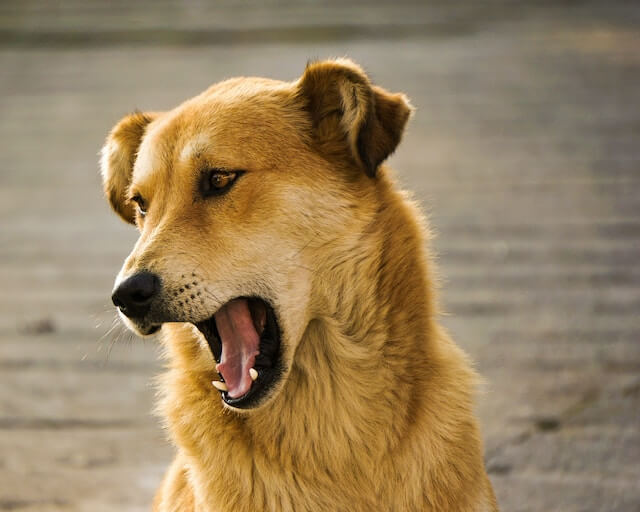As a pet owner, it’s normal to worry when you notice your dog sneezing a lot. It could be a harmless response to a tickle in their nose or a sign of a more serious underlying issue. In this article, we’ll discuss possible causes and explore the importance of recognizing them. So, let’s dive into the world of dog sneezing.
Causes of Dog Sneezing
Understanding the potential causes of dog sneezing is essential for ensuring your furry friend stays healthy. Before delving into the specific reasons, it’s crucial to understand how a dog’s nose functions. It has two functions: olfaction and respiration. They have an incredible sense of smell, and their noses contain specialized cells that help them detect scents. When it inhales, air enters its nostrils and passes over these cells, which send signals to the brain, allowing the pet to identify smells. However, this process can be interrupted by various factors, leading to sneezing.
Allergies
They can be allergic to a variety of environmental factors, such as pollen, mold, dust mites, and household cleaners. When a dog inhales an allergen, its immune system overreacts and produces histamine, a chemical that causes inflammation in the nasal passages. The resulting symptoms include sneezing, dog runny nose, coughing, skin irritation, and itching.
Irritants
Another reason for dog sneezing a lot is irritants. Environmental irritants such as smoke, perfumes, and dust can irritate a dog’s nasal passages and cause sneezing. Household irritants such as cleaning products, pesticides, and air fresheners can also be a trigger.
Infections
Bacterial infections such as kennel cough and pneumonia can cause inflammation in the respiratory system, leading to sneezing, coughing, and difficulty breathing. Fungal infections such as aspergillosis can affect the respiratory system and cause similar symptoms. Moreover, viral infections such as canine influenza can also cause respiratory symptoms.
Dental Problems
Dogs with dental issues such as periodontal disease or tooth abscesses can develop a dog runny nose and sneeze as a result of the infection spreading to the sinuses. Regular veterinary check-ups and good dental hygiene are essential for maintaining your pet’s overall health and preventing sneezing caused by dental problems.
Other Symptoms Associated with Sneezing
Pets with respiratory problems may also exhibit other symptoms. Here are some common symptoms that may be associated with dog sneezing:
- Coughing: If your dog is sneezing a lot and also coughing, this may indicate a respiratory infection or an issue with their airways. Coughing can be a sign of kennel cough, a common respiratory infection that affects them;
- Discharge from the nose: Nasal discharge can also occur as a result of diseases or dental problems. If your dog is sneezing and also has discharge coming from its nose, this may be a sign of an infection. The discharge may be clear, yellow, or green, and may be accompanied by a foul odor;
- Reverse sneezing: It is characterized by rapid inhalation and snorting and may be accompanied by a honking sound. It’s not usually a cause for concern, but if your pet is experiencing frequent reverse sneezing episodes, it’s a good idea to speak with your veterinarian;
- Difficulty breathing: It is a severe symptom that requires immediate veterinary attention. If your dog is sneezing and also having difficulty breathing, this may indicate a serious health issue. It may be a sign of a respiratory infection, an allergic reaction, or a more serious issue such as heart disease.

Treatment for Dog Sneezing
It will depend on the underlying cause of the issue. Here are some common treatment options:
- Your veterinarian may recommend immunotherapy to help manage allergy symptoms. This involves exposing the dog to small amounts of the allergen over time to build up a tolerance. Antihistamines and decongestants may also be prescribed to alleviate symptoms;
- If your pet is sneezing due to an infection, treatment will depend on the type of infection present. Infections such as kennel cough may require antibiotics to clear up the bacteria. Viral infections may require supportive care, such as fluids and rest, while the virus runs its course;
- Dental problems may require dental cleaning, extractions, or other dental treatments to address the underlying issue. It’s important to schedule regular dental check-ups for your dog to prevent dental issues from developing.
In some cases, your veterinarian may also recommend supportive care for your pet, such as steam therapy or humidifiers to help ease the symptoms and promote respiratory health.
Preventive Measures
Preventing sneezing can involve taking certain measures to reduce exposure to potential allergens or irritants. Here are some preventive measures to consider.
Regular Cleaning
Keeping your dog’s living space clean and free from dust, dirt, and other potential irritants can help reduce the risk of sneezing. Regular vacuuming, dusting, and cleaning can help minimize the number of irritants in the air.
Keeping Dogs Away from Irritants
If your dog is sensitive to certain smells or chemicals, consider using natural cleaning products or avoiding exposure to these substances altogether. Adjust your pet’s diet or medication or make changes to its living environment to reduce exposure to potential irritants. Moreover, avoiding smoking around the dog can help reduce respiratory issues. Using air filters and avoiding household cleaners and other irritants can also help.
Regular Grooming
It helps keep your dog’s fur and skin healthy and reduces the risk of sneezing due to allergies or irritants. This may involve brushing your dog’s fur regularly, bathing them as needed, and trimming their nails to prevent scratching and irritation.
Proper Dental Care
Regular dental check-ups help prevent dental issues from developing and reduce the risk of sneezing due to dental problems. Teeth cleaning and addressing tartar buildup prevent the spread of infection to the sinuses. Furthermore, providing them with appropriate chew toys and treats can also help promote good dental health.

When to Seek Veterinary Care
You should seek medical attention for a pet if it is sneezing excessively or displaying other symptoms such as coughing, discharge from the nose, or difficulty breathing. It is accompanied by other symptoms such as lethargy, loss of appetite, or a fever, this may indicate a more serious underlying condition.
Regular veterinary check-ups and addressing any concerning symptoms promptly can help ensure health and well-being. Early detection of respiratory issues is key to successful treatment and management of the condition and leads to a better prognosis and faster recovery.
Your veterinarian may perform a physical exam and other diagnostic tests to determine the underlying cause of a dog keeps sneezing. This may include blood tests, x-rays, or cultures to check for bacterial or fungal infections. Your veterinarian may also recommend allergy testing or other diagnostic procedures to help identify potential allergens or irritants.
Conclusion
In conclusion, it is a common occurrence and can be caused by various factors. We have discussed various treatment options for dog sneezing, including medications for allergies and infections, dental care, and preventive measures such as regular cleaning and grooming. It is essential to seek veterinary care if you notice any concerning symptoms, as early detection and treatment can prevent the issue from worsening.
